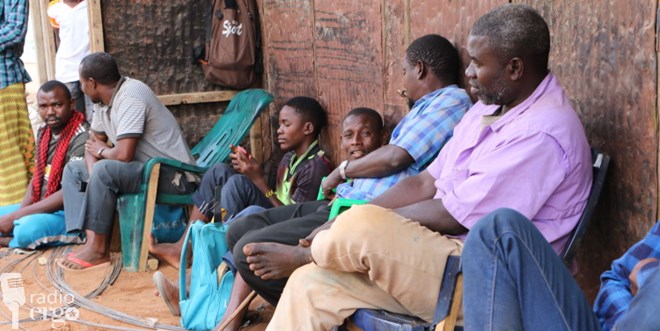
Friday, February 4, 2022
Ali Abdi Ahmed, a construction worker in Galkayo, has been out of work for six months as there is hardly any building going on due to the worsening drought conditions. In January, his wife walked out leaving the three small children behind, saying he had failed to provide for the family.
“I used to go out every morning to look for construction jobs and come back without anything,” said Ali, who had been married for five years. “My wife and I quarreled over the bills, and she couldn’t believe that I was jobless because I used to leave home every morning. In the end, we divorced.”
Ali had to leave the three-bedroomed house he had been renting, He moved into a $20-per month single room with his four-year-old son, and his sister and brother. His other two children – a daughter aged three and a son aged 18 months – have been sent to live with their grandmother in Galkayo.
He had to stop paying fees for his brother in his last year of school fees and for his sister in her second year studying public health at Modern Galkayo university. Both siblings have dropped out of their education.
Speaking to Radio Ergo’s local correspondent in Galkayo market, Ali said he had no other skills.
“I used to get at least $12 on the days I found work in construction, but now here I am with nothing. I have come here today hoping to find work unloading goods from a vehicle to get money to buy food.”
With high inflation rates, and an economy battered by the effects of drought and COVID19, many unskilled labourers in Galkayo have lost their jobs and their families have been broken up as a result. Divorce rates are said to be spiralling.
Hadiyo Ahmed Barkhadle, a mother of seven, divorced in December after fighting with her husband over the family bills. She went to live in Taakulo IDP camp in Galkayo after the separation, taking her seven children with her, as she could not afford to keep up the rent payments on their two-roomed house.
Hadiyo is now running a small vegetable shop inside the camp to provide for her children. She buys vegetables from the main market on credit and pays the money back from her daily sales. It is a tough existence.
“Some nights we sleep hungry, other times we get just a small amount of food to eat. The drought has also affected the residents of the camp so at most I make two and half dollars per day,” she told Radio Ergo.
Hadiyo said her husband, who worked on construction sites, is not paying anything towards the children’s upkeep.
The chairman of Isxaaq IDP camp in Galkayo, Mohamed Hussein, said that in just two months he has registered 16 cases of couples in the camp quarrelling over domestic finances. He said they managed to help resolve three of the marital disputes, but 13 cases ended in divorce.
“We hold meetings for the camp community, where we collect money from the better-off people who have small businesses. We give the money to the families who have a dispute over bills to try to stop them from breaking up,” the camp chairman said.
The rise in divorce rates in the city is a matter of concern among the traditional elders in Galkayo, who say that growing poverty is putting unbearable financial pressure on low-income families.
One elder and peacemaker in the city, Mohamed Nur Mohamed, said he has taken part in mediating 30 marital disputes in December and January. However, he was successful in resolving only about half of them.

